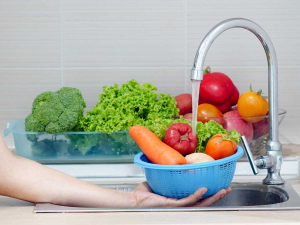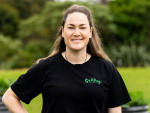Misinformation is circulating in some media and on social media regarding the role of food in the potential transmission of the COVID-19 virus, says United Fresh president Jerry Prendergast.
An example is videos and other social media postings telling people to wash fruit and vegetables in detergent. This is inadvisable, Prendergast says.
New Zealanders can safely purchase fresh fruit and vegetables during COVID-19.
The pan-produce organisation that represents the entire value chain is reminding Kiwis to wash all produce as normal by rinsing it under the tap. It is not advisable to wash fresh produce with detergent.
“United Fresh reinforces the message from the World Health Organisation that fresh produce is safe and consumption of fruit and vegetables is encouraged during this time,” Prendergast says.
“In the home, wash your hands with warm soapy water for at least 20 seconds and dry thoroughly before preparing food and also before eating. Wash your fresh fruit and vegetables as you normally would.”
The New Zealand Food Safety & Research Centre says so far there is no evidence that humans have been infected by swallowing the virus in or on food or drink.
The European Food Safety Authority has also stated there is no evidence that food is a likely source or root transmission of COVID-19.
COVID-19 is commonly transmitted through breathing in the virus from the sneeze or cough of someone who is infected, or through hand to mouth/nose/eye contact after fingers have touched a contaminated surface.
But Prendergast says it is more important than ever that food businesses apply strict food preparation and hygiene practices.
Infection is unlikely to occur if food handlers in food businesses and in the home follow standard, good personal hygiene practices that reduce the risk of transmission of most foodborne illnesses.
These practices include:
• proper hand hygiene
• safe food practices
• cough/cold hygiene practices
• avoiding close contact with anyone showing symptoms of respiratory illness such as coughing and sneezing
Prendergast says the best thing New Zealanders can do right now, apart from staying home, is to build their immunity by eating fresh produce.
“Fresh fruit and vegetables provide nutrients—like beta-carotene, vitamin C, and vitamin E—that can boost immune function. Kiwis should aim to eat 5+ A DAY, that is five or more servings of colourful, fresh fruit and vegetables every day for health and vitality.”
He says the country has a plentiful supply of fresh fruit and vegetables in New Zealand during this time and beyond.


















